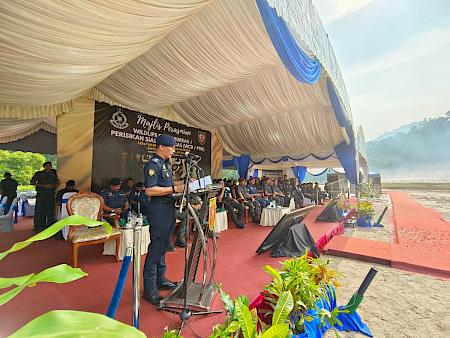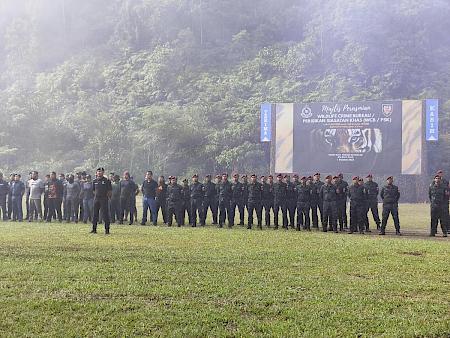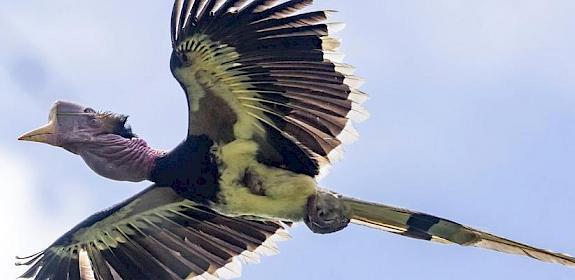More bite for Malaysia’s fledgling Wildlife Crime Bureau
The Royal Malaysian Police has officially launched and expanded its Wildlife Crime Bureau (WCB) which will now address not only wildlife poaching and trafficking but also the illegal exploitation of all natural resources.
The bureau, first set up in May 2022, has also been integrated with the Police Special Investigations Intelligence Unit.
The integration is meant to leverage the force’s strength and experience in intelligence gathering and investigations. Consequently, the bureau’s workforce has increased from 50 to 78 officers.
Renamed the Wildlife Crime Bureau/Special Investigation Intelligence unit, it is now under the leadership of Senior Assistant Commissioner Mohammad Azlin Sadari.
The establishment of the Wildlife Crime Bureau embodies the government’s commitment to conserving the Malayan tiger. It was set up at a time when the threat against tigers and poacher interest in targeting tigers were high”
Malaysia’s Inspector-General of Police, Tan Sri Razarudin Husain.
Despite its recent establishment, the bureau has already achieved notable successes and collaborates with various enforcement agencies and non-governmental organisations to protect tigers and natural res ources.
ources.
Nevertheless, the Malayan tiger remains under substantial threat, with an estimated wild population of fewer than 150 individuals. Recent incidents, such as the imprisonment of an individual found in illegal possession of a dead tiger cub and two tiger skins earlier this year in Malaysia, underscore the urgency of combating illegal activities.
“But as well as conserving the Malayan tiger, the WCB will also work to ensure the survival of all natural resources is guaranteed, and is not easily depleted by illegal activities,” he told the press after the launch event which TRAFFIC attended.
The bureau will delve into investigations related to various natural resources crimes, including illegal extraction of rare earth elements, gold, and timber.
Razarudin affirmed the use of all available laws to fight natural resources crime including Firearms, Anti-Money Laundering and even Security Offences laws.
Situations where poachers illegally extract multiple natural resources from Malaysian forests, and others where illegal fishers take and traffic both protected terrestrial and marine species at once, both show that nature crimes converge and are complex”
Kanitha Krishnasamy, Director for TRAFFIC in Southeast Asia.  “The bureau’s wider remit clearly recognises this and the need for new approaches to tackle wildlife crime. We congratulate the police on this enhanced approach to the problem,” she added.
“The bureau’s wider remit clearly recognises this and the need for new approaches to tackle wildlife crime. We congratulate the police on this enhanced approach to the problem,” she added.
Police, together with the Department of Wildlife and National Parks Peninsular Malaysia (PERHILITAN) and the Royal Malaysian Customs spearhead a task force of enforcement agencies that works in cooperation to tackle wildlife crime. TRAFFIC has engaged with the taskforce since its establishment in 2019 and has participated in the taskforce's biannual meetings along with several other Malaysian conservation organisations.
From January to September this year, agencies under the taskforce recorded 192 wildlife crime cases, resulting in the arrest of 175 individuals and the seizure of wildlife and forest products.
These statistics were disclosed by Datuk Seri Hazani Ghazali, the director of the Federal Police Internal Security and Public Order Department, after the 14th meeting of the taskforce that followed the launch event.




